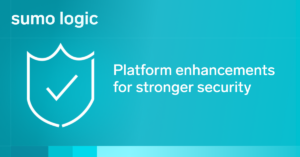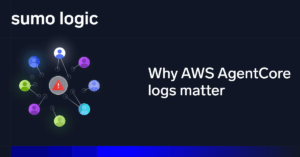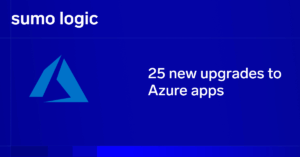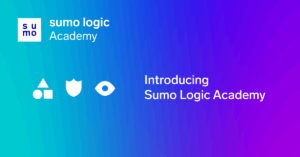El Amor En Los Tiempos Del Coronavirus
Cien años de Soledad? Do not want! And yet, for all of us, the world has changed pretty dramatically over the last few weeks. We could debate over whether this should, in fact, have been the last few months instead, but looking backward at this point isn’t really pragmatic. What is practical, I think, is to tackle the issue first hand, and to be transparent in how we are dealing with the situation we are all in right now. As you know, one of our core values is to be In It With Our Customers. So, just as you are, we are forced to learn to adapt. Just as you are having to, we are having to learn new behaviors. Just as your customers rely on you, we know how much you depend on us and our service. It is genuinely turtles all the way down.
I want to spend a second highlighting an essential aspect of how we operate. In essence, we rely on other services to power our product, just like you are relying on us to deliver a reliable service independent of macro-level circumstances. First and foremost, this is, of course, Amazon AWS. Not only are we a SaaS provider ourselves, but from the beginning, our philosophy has been to rely on SaaS and services ourselves everywhere we can. Especially for the core parts of what we are trying to do! We are grateful to AWS and other providers we rely on keeping their lights on so we can keep ours on so that you can keep on yours. The world has also changed dramatically in other ways of the last decade: SaaS does have an admittedly if not unexpected, so far at least underappreciated advantage. We can actually continue to operate even though pretty much all of us across the world are not allowed to leave our houses. It works because we don’t have physical infrastructure to maintain!
As it became apparent throughout February that the ground below our feet had begun to shift permanently, we activated an Emergency Management Committee, under the joint leadership of our HR & Security teams, supported by executive staff. Consisting of Sumos across the entire world, this team has since been meeting on a daily basis to understand the impact of the changes we are facing. Actions taken have already included outbound communication to ensure you all have visibility into our focus to keep the service running smoothly, including the recent message you should have all gotten from our CEO Ramin on March 17th.
Predominantly, however, this team has coordinated internal action. This is, of course, focused intensely on making sure that we understand how to keep the service running smoothly. We revisited our Business Continuity Plans. Over the years, we have thought long and hard about our service operations and single points of failure. Under constant productive pressure from you, our customers, demand for scale and reliability, this has obviously been a core focus for Sumo. But nothing quite like a real-life pressure test, and we have been tightening up on all ends even more over the last couple of weeks. We continue to be open for business, and despite all this external change, we will continue to focus on delivering the service you need, no excuses.
But we have also spent a lot of time understanding the psychological impact on all Sumos. For weeks, we have mandated work from home. Yes, it is disruptive, and yes, it stresses our processes. But we believe absolutely in the priority of keeping humans safe––our employees, and everyone else. We can talk about business continuity all day long, but only healthy Sumos can run and maintain a smooth Sumo service. Turns out that working from home is hard, much harder than I am sure most of us, including myself, would have ever anticipated. So we are in constant contact with all Sumos internally, even if this potentially means over-communicating. Not only are we communicating through levels of leadership, but we also encourage virtual casual time, happy hours, and so forth over video conference. As an introvert myself, I had to be convinced that this matters. Let me tell you: it does!
One thing about my own experience in dealing with these changes: after weeks of back-to-back, wall-to-wall Zoom meetings every single day, I found myself rather unable to function properly. Turns out that somehow, even though I usually have a very high meeting load, everything being a video conference drains me a lot more and a lot faster. I run out of time to think. I don’t know what I am supposed to say in the next meeting. Distress! Thankfully Johanna Rothman’s last newsletter reminded me of the Satir Change Model. As always, it is a useful model to contemplate over. I realized I needed to push a Transforming Idea for myself. This week, I have managed to successfully free up 4 out of 5 afternoons for uninterrupted thinking and doing. I love all Sumos, and I love to be on calls and video conferences. But for me personally, I can’t do it 24/7. With everybody’s help, I rearranged a bunch of my days. I hope to keep it this way going forward. No more distress.
Horses for courses… for each of you individually, the Transforming Idea might be something else. Your circumstances and contexts are unique and different. Your triggers are different. But we all have had no choice in accepting the Foreign Element. The Satir Change Model might inspire something positive for you! Pay close attention to the chart below: the New Status Quo is actually at a higher level than the old (it is subtle, but it is there!), meaning there is also opportunity for lasting improvement coming out of all of this.
I would like to also highlight a few things we have been working on at Sumo for the wider community:
- We are reaching out to educational institutions offering free, unlimited services to support them in their rapid turn to digital/online learning and the resulting operational challenges
- We have partnered with happiness researcher author Shawn Achor for a podcast series on adjusting our mindset in this current climate
- Mindset Reset series, launched this week
- We are offering a Work-from-Home Solution that provides visibility and management for all your work-from-home services
- COVID-19 dashboards created by Ammar, a Professional Services Sumo in Europe
We are all in this together. We have agency. We design the future. Be safe, and: Love, only love conquers all.



